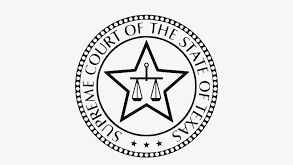Supreme Court of Texas Emergency Order 47
Remote Hearings to Continue

The Supreme Court issued the Forty-Seventh Emergency Order that replaces the previous general emergency order (Forty-Fifth) that was set to expire on February 1. The Forty-Seventh Emergency Order leaves in place all provisions of the prior emergency order (Forty-Fifth) and adds one provision regarding the extension of deadlines in CPS cases. The following are the key provisions of the new order:
- Continues the authority of courts, without a participant’s consent, to modify certain procedures and deadlines in CPS cases for certain stated periods of time;
- Authorizes the regional presiding judge of the trial court’s administrative judicial region to extend dismissal dates in CPS cases up to 60 days beyond the dates specifically provided in the emergency order without a participant’s consent upon good cause shown by the requesting trial court after the dismissal date (also provides that prior to making a request for extension to the regional presiding judge, the trial court should consider the use of alternative dispute resolution under Section 153.0071 of the Family Code and Section 154 of the Civil Practice and Remedies Code);
- Leaves in place the time period for justice and municipal courts’ authority to modify or suspend trial-related or pretrial hearing-related deadlines and procedures for a stated period ending no later than March 1, 2022;
- Subject to constitutional limitations and review for abuse of discretion, continues the authority of all courts, without a participant’s consent, to require or allow remote hearings, consider sworn statements made out of court or sworn testimony given remotely, conduct proceedings away from the court, require participants to provide certain COVID-related information to the court, and take any other reasonable action to avoid exposing court proceedings and participants to the threat of COVID-19;
- In criminal cases where confinement in jail or prison is a potential punishment, remote jury proceedings must not be conducted over the objection of the defendant or the prosecutor. In all other cases, continues the authority of courts to conduct remote jury trials without consent, except that the court must consider on the record or in a written order any objection or motion related to the remote jury proceeding;
- Provides that a timely objection to a remote jury proceeding may be granted for good cause;
- Continues the authority of the chief justices of the courts of appeals and local administrative district judges/municipal court presiding judges to mandate compliance with the minimum standard health protocols that they adopt for their courtrooms and the public areas of court buildings;
- Requires OCA to continue issuing best practices as necessary.
The Forty-Seventh Emergency Order expires on April 1, 2022, unless extended by the Chief Justice.